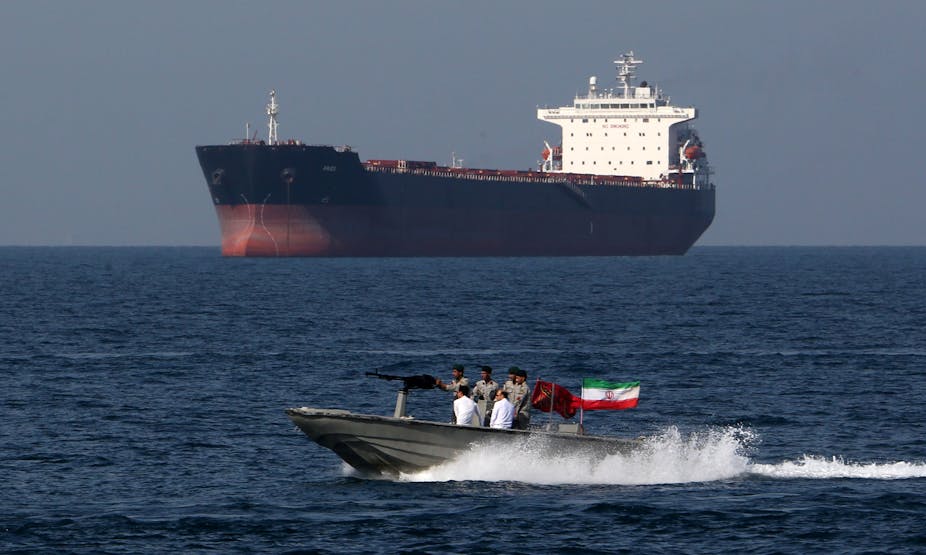 |
A note from...
Emily Schwartz Greco
Philanthropy + Nonprofits Editor
|
|
|
With U.S.-Iran tensions high after Iran’s retaliatory attack yesterday, experts are wondering whether Tehran will try to obstruct the Strait of Hormuz, a narrow channel through which all shipping traffic from energy-rich Gulf countries passes.
Rockford Weitz, a maritime studies scholar at Tufts University’s Fletcher School, explains the strait’s importance and offers reasons not to bet on an escalation that significantly interferes with the region’s oil trade. “In the past both the U.S. and Iran have pivoted back to diplomatic solutions when tensions have become too high,” he writes. In his view, this history suggests “that neither side wants to see the conflict escalate from
hybrid warfare into a full-blown war.”
Also today:
|
Top story
|

Iranian soldiers take part in National Persian Gulf Day in the Strait of Hormuz.
Atta Kenare/AFP via Getty Images
Rockford Weitz, Tufts University
Any disruption to shipping in the narrow seaway could impact oil prices and ratchet up geopolitical tensions.
|
Politics + Society
|
-
Ken Hughes, University of Virginia
An expert on Watergate says that today's House Republicans have taken precisely the opposite position than the GOP took in 1974 on the president's power to withhold documents from Congress.
-
Alexandra Isfahani-Hammond, University of California San Diego
Negro Matapacos became famous in Chile in 2011 for joining student protests. His image has now popped up around the world.
|
|
|
|
|
|
Environment + Energy
|
-
John Freemuth, Boise State University; James R. Skillen, Calvin University
Do public lands in the West belong to Westerners, or all Americans? Moving a federal agency's headquarters from Washington, DC to Colorado is the latest skirmish in a longtime struggle.
-
Roland Kays, North Carolina State University
Coyotes, whose range is expanding, are now at the doorstep of South America.
|
|
|
|
|
|
|
|
|
|
Most read on site
|
-
Libby Richards, Purdue University
Getting in better shape is one of Americans' top resolutions for the new year, but many people give up after six months. Here are some suggestions to make exercise enjoyable so you can stick with it.
-
Klaus W. Larres, University of North Carolina at Chapel Hill
President Trump's Iran policy took a dramatic turn when the US killed Iran's top military commander in a drone strike. To avoid war, one foreign policy scholar says Trump has to reverse his stance.
-
Dariush Mozaffarian, Tufts University
Confused about whether meat is good or bad for you? You're not alone. Various studies, some of which were funded by the meat industry, have added to the confusion. A noted expert sorts it out.
|
|
Today’s chart |
-
  |
Bear F. Braumoeller
The Ohio State University
|
| |
| |
| |
|
|